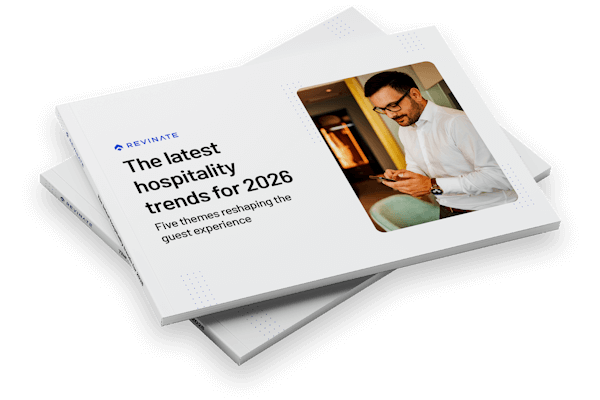Sales equals speed in 2026 for hotel lead nurturing
Sales equals speed in 2026 for hotel lead nurturing
This article was written by Adam Mogelonsky
We all know the cheetah is the fastest land animal, but do you know what’s the next fastest out on the African savannah? Its prey.
For all the majestic epithets and associations for this big cat, it’s only marginally faster than the springbok and other types of antelope. Yet to the speediest go the spoils.
Cultivating leads in hospitality to win the sale is a consummate task for hotel teams, whether responding to a curious leisure guest or responding to a juicy group RFP. As we enter the latter half of the decade and into an era of tech-everything hyper-capitalism, speed of response is now the foremost KPI to optimize for.
There are plenty of stats going around to indicate how alacrity impacts conversions, but the catchiest one I recall is that the first three responses to an inquiry win 90% of the business.
Life is set at the margins, though. The cheetah has evolved to be just fast enough to chase down its dinner. Ergo, improving response time isn’t about grandiose overhauls of the entire commercial team and culture; it’s about incrementalism, or being 1% better every day.
Half-life mentality for a quick response
Urban legend or not, with the majority of business going to the top three responses to any transient or formal sales request, a general rule of thumb is to respond within five minutes of receiving the initial ping.
After that grace period, we can observe an exponential decay of lead quality as hotels deliver delayed answers or other forms of follow-up. Besides the principles of evolution, this decay echoes another scientific principle: a chemical half-life, or the time for the quantity of an entity to reduce by half its initial value.
So, within five minutes, you’re sitting at 100% attention from your customers. By the 10-minute mark, you’re at 50%. Somewhere around 20 minutes afterwards, you’re at 25%, and so on. This is simply the nature of our impatient, dopamine-hijacked society. And that response time target of five minutes applies at any time, day or night!
What’s implied in all this is the adept use of automation and other hotel technologies to prevent half-life decay of leads. Again, the incrementality of lead nurturing implies that maximizing conversion rate has no silver bullet but rather a cluster of specific improvements, including but not limited to:
Omnichannel inbox: Centralizing all inquiries helps to focus teams and response coordination, ensuring that no channels get missed and that you have continuity as shift workers and managers log in or out.
Generative first response: Yes, AI helps immensely with that first ‘hold please’ message, assuaging customer doubts within a virtual concierge environment by delivering immediate answers to common questions or others ingrained in the knowledge base.
Unified guest profiles: One of the core functions of a quality CRM, but nevertheless worth reiterating, a huge part of lead nurturing and timely responses is knowing who you are talking to and what was previously stated.
Robust digital presentation: Nowadays, it’s not always about driving traffic to a form fill or hotline, but about giving quality information on the website or within a trained bot (webchat or voice assistant) so that potential customers can ‘window shop.’
Automated escalations: Whether by SLAs or other types of notifications, you need a firm process for ensuring that no leads slip through the cracks or that when one of your team members says, “Let me check,” they actually get back in a timely fashion.
Both types of systems required
The word “system” has a double meaning. Hotel technologists are primed to think of it as referring to the software and referential databases through which commercial activities and operations are enabled. System also refers to the habits and routines that can underpin successful business process innovation.
Both are critical for lead nurturing, with the descent into 2026 favoring speed of response as the most important outcome from well-honed systems (both software and habits).
Take the ‘unified guest profiles’ suggestion from the above list. Extracting and structuring the data to achieve this goal requires a bunch of connected systems (PMS, POS, GEMS, loyalty, spa and leisure, etc.), but it also requires steadfast business processes to coordinate the setup and maintenance of those APIs.
Some questions I would ask commercial teams about said business processes are:
- Who’s the project champion to liaise with vendors?
- Who’s charged to look for ways to inject new forms of automation (like generative responses) into your lead nurturing processes and has time to write the SOPs or set up the new processes?
- Who’s monitoring for disconnects and informing the project champion?
- How are new software versions tested before being deployed live?
- What’s the cycle of meeting, then budgetary approval for development work or SaaS fees necessary to upgrade interfaces?
These are all the “human stack” elements, yet still part of the overall system. Once a good framework for incrementally improving speed of response has been achieved, only then can you further refine towards better balancing “quality of response,” setting up intriguing trigger-based nurture campaigns, or optimizing for other KPIs like customer lifetime value (CLV) – the real Holy Grail.
Whether it’s winning a hotel booking through solid, speed-led nurturing or a sprint on the open grasslands for a literal survival of the fittest, evolution is a process that’s always ongoing. The cheetah is the fastest today, but who knows about tomorrow (albeit “tomorrow” in this sense is a metaphor for geological timescales). For today, you need to turn your commercial team into a rapid response force that’s armed with the latest tools and training, while for tomorrow, you’ll need to constantly revisit your systems to ensure you maintain that competitive edge.
This site is protected by reCAPTCHA and the Google Privacy Policy and Terms of Service apply. View our Terms & Conditions here. *Required fields.






